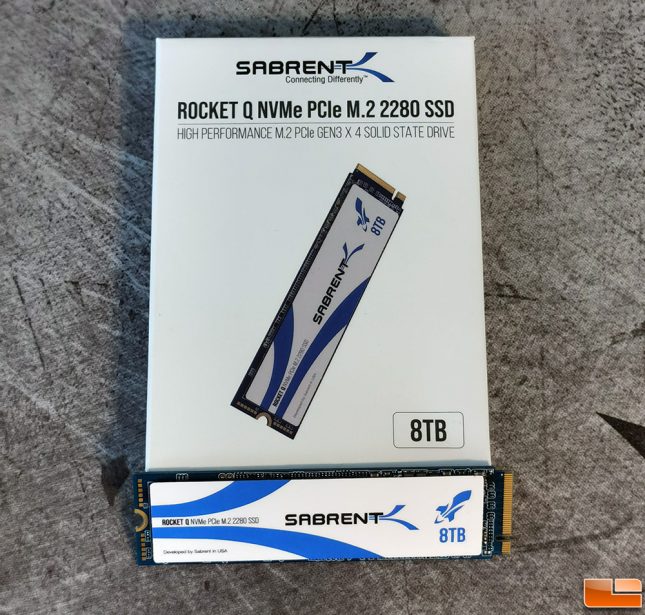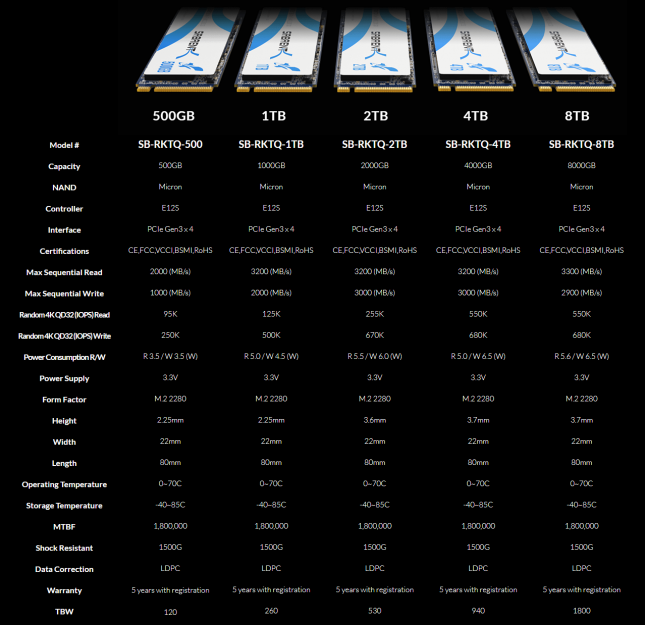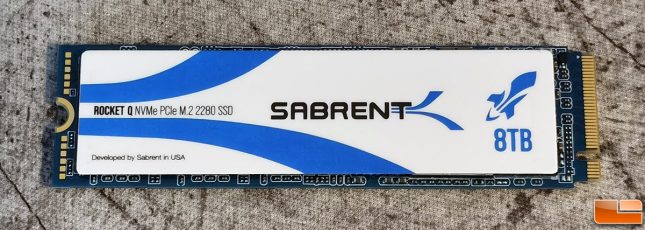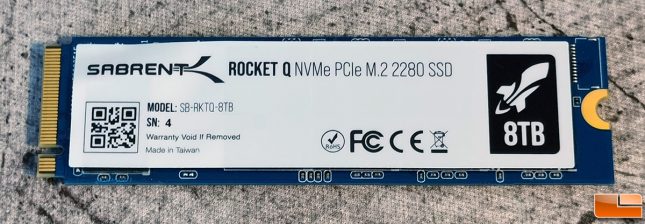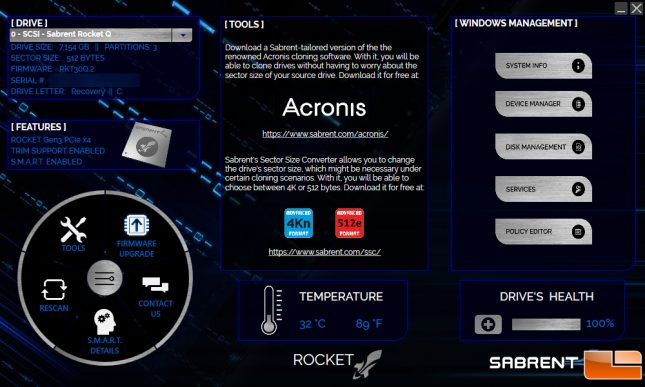Sabrent Rocket Q 8TB SSD Review – M.2 2280 Goes 8TB
Sabrent Brings the 1st 8TB M.2 2280 SSD To Market
Earlier this year we did a review on the Sabrent Rocket Q 1TB NVMe SSD that used QLC (Quadruple-Level Cell) NAND Flash memory that stores four bits of data per cell. The drive did well in our performance tests for an entry-level NVMe drive, but at the end of the day it was just another 1TB capacity NVMe SSD in a market that feels flooded with drives. The whole point of QLC NAND Flash is to allow the storage of more bits per cell than its predecessors, enabling larger drive capacities at more affordable price points. When we heard that Sabrent was finally getting shipments of 8TB NVMe PCIe M.2 2280 SSDs in-stock we were excited to get our hands on one. Having 8TB of storage capacity on a standard M.2 2280 ‘gum stick’ drive is a going to be a big deal for anyone that deals with large data sets!
From the very second that the Sabrent Rocket Q 8TB SSD arrived on our front door step we put it straight to the test bench and started running benchmarks. This 8TB model can reach sequential speeds of up to 3,300 MB/s read and 3,000 MB/s write. The Random 4K performance numbers can reach up to 550,000 IOPS read and 680,000 IOPS write.
To reach these performance numbers, Sabrent is using the Phison E12S 8-channel controller paired with Micron 3D QLC NAND Flash memory on the Rocket Q SSD series. Performance is dependent on what capacity drive that you are purchasing, so be sure to look at the specifications table below to see the differences.
All of the Sabrent Rocket series drives are backed by a 5-year warranty, but you have to register your drive with Sabrent to get that warranty length. If you do not register your drive youll end up with a 1-year warranty. You have 90-days to register the Sabrent Rocket drive that you purchase to get the 5-year warranty period.
- SB-RKTQ-500 120 TBW
- SB-RKTQ-1TB 260 TBW
- SB-RKTQ-2TB 530 TBW
- SB-RKTQ-4TB 940 TBW
- SB-RKTQ-8TB 1800 TBW
You are looking at 1800 TBW or 1.8 Petabtes for the Sabrent Rocket Q 8TB model that we are reviewing today. Doing some math on that comes out to and that comes out to being about 986 GB of drive writes per day over the course of five years.
Our First 8TB M.2 NVMe SSD
The drive that we were sent out to review was the Sabrent Rocket Q NVMe PCIe M.2 2280 8TB SSD that is sold under part number SB-RKTQ-8TB. This drive can be purchased from Amazon for $1499.99 shipped and is in-stock and ready to ship. This breaks down to be about $0.19 per GB. The 1TB capacity Rocket Q drive can be picked up for $119.98 shipped or for around $0.12 per GB. Yes, you are paying a premium to have the largest capacity possible for a drive in this form factor!
Sabrent uses the standard M.2 2280 gum stick form factor and the 8TB model is a single-sided drive as you can see from the images above and below. Sabrent went with a blue PCB for this drive and it doesnt look bad as it matches the blue on the label. The top label doubles as a heat spreader since it contains a thin piece of conductive metal inside. The Rocket Q 4TB and 8TB models are 3.7mm in thickness, but they should work inside laptops or under a graphics card without issue.
On the back of the drive there is another label that shows the model number, capacity and the serial number. On each side of the drive you’ll find four QLC NAND Flash chips and one DDR3 8Gb DRAM chip. The top of the drive has the Phison E12S controller in addition to the said DRAM and QLC NAND Flash.
Lastly, Sabrent offers free software that might be a value adder to many consumers. First is the Rocket Control Panel that allows you to monitor your drive and update the firmware. The second piece of software is Sabrent’s Sector Size Converter utility that allows you to change the drives sector size. Lastly, the third and final free download is the Acronis True Image cloning software that allows you to clone your existing drive to the brand new Sabrent SSD that you have purchased. Sabrent offers a robust set of software applications that will likely help you out at some point down the road.
That all said, lets take a look at some benchmark numbers on our AMD X570 test platform.

